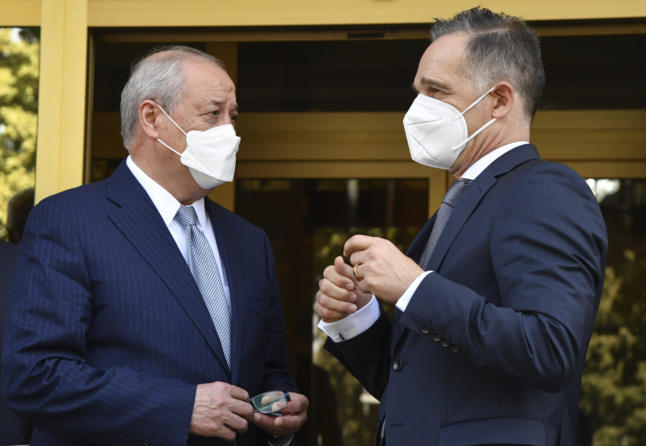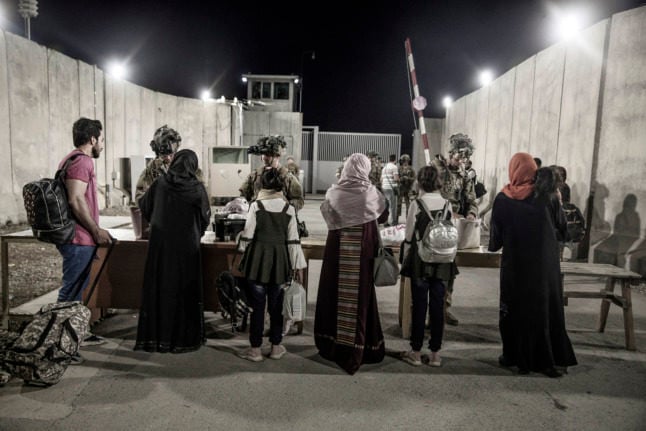Left Party politicians are pushing the German government to accept a greater number of Afghan refugees after it was revealed that the country had taken less than half of its maximum quota so far in 2021.
According to government figures, Germany accepted around 47,000 refugees in the first half of the year, while more than 11,000 were either deported or denied asylum.
The figures were revealed after the opposition Left Party put in a question to the governing coalition to interrogate its recent track record on accepting refugees.
In the coalition agreement, the CDU/CSU and SPD had pledged to create a route for up to 180,000 to 220,000 refugees to emigrate to Germany each year.
But if the current trend continues, they would be on track to take 95,000 asylum seekers by the end of 2021 – amounting to less than half of the cap set by Interior Minister Horst Seehofer.
“In view of the worldwide increase in refugee numbers, this is shameful news, because as a rich country, Germany is thus not living up to its responsibility for refugee protection,” Ulla Jelpke, the Left Party interior spokeswoman said in parliament.
READ ALSO: OPINION: Germany is failing its Afghan helpers – out of fear of repeat of 2015 refugee crisis
Even if Germany were to take in 50,000 particularly vulnerable people from Afghanistan, the country would still fall far short of the upper limit drawn “arbitrarily” by Seehofer, Jelpke added.
Debate over Afghan refugees
As the situation in Afghanistan grows increasingly volatile, German politicians are under pressure to offer assistance to a number of people who could be facing acts of retaliation from the Taliban for aiding Western forces over the past two decades.
Following talks with neighbouring Uzbekistan on Monday, Foreign Minister Heiko Maas (SPD) said that assistance would only be offered to those who had already been granted permission to come to Germany.
“We are only concerned with this group of people,” he said.
READ ALSO: German army evacuates more than 2,700 people from Afghanistan
There are more than 10,000 Afghans on the Foreign Office’s departure lists.
These include former Afghan employees of the German armed forces or ministries – the so-called local staff – and people in need of special protection, such as human rights activists or women’s rights activists.
In addition, there are their family members. As things stand at present, there are more than 40,000 people who could potentially be taken in by Germany – provided they manage to leave the country.

Foreign Minister Heiko Maas meets Uzbekistan’s Foreign Minister Abdulaziz Komilov, to discuss the ongoing situation in Afghanistan. Photo: picture alliance/dpa/AP | Uncredited
In his comments on Monday, Maas stressed that the remaining rescue operations would take some time.
“There is no time limit,” he said. “This is an issue that will keep us busy for weeks and probably months.”
On Thursday, the last of Germany’s troops and government officials pulled out of Kabul after evacuating around 5,300 people – include 3,600 Afghans.
READ ALSO: Germany’s evacuation operation in Afghanistan ends
Announcing the end of the evacuations on Twitter, the Defence Ministry said it was not possible to extend the operations due to “security concerns”.
Over the past week, there have been a number of deadly bomb attacks in and around Kabul airport as thousands of people have struggled to make it onto flights out of the country.
“We will continue to work to protect those who have been left behind,” the German Defence Ministry said.




 Please whitelist us to continue reading.
Please whitelist us to continue reading.
Member comments